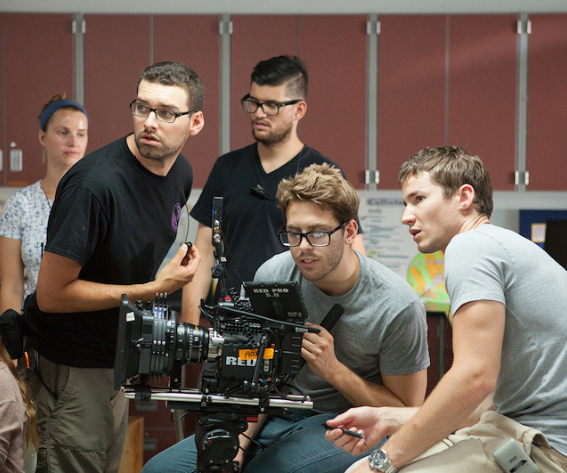Film has long been more than just entertainment—it is a medium of storytelling, cultural reflection, and artistic expression. For many students, pursuing film studies at a university is a chance to dive deep into the history, theory, and practice of cinema. Whether the goal is to become a filmmaker, critic, academic, or media professional, studying film provides the intellectual tools and creative skills to thrive in an increasingly visual world.
Of course, embarking on a degree in film also means facing significant academic challenges. Essays, critical analyses, and research projects are core parts of most film programs, alongside practical production work. For students who sometimes struggle to keep up with deadlines or balance theory with practice, resources like Essaypay can be useful in providing writing support. This kind of assistance allows students to spend more time on the creative side of film while still excelling academically.
Why Study Film?
Film studies offers a unique blend of creativity and analysis. Unlike programs that focus solely on the technical aspects of filmmaking, university film courses balance practical training with critical thinking. Students learn not only how to use a camera or edit footage but also how to interpret the cultural and historical significance of films.
By studying film, students:
-
Develop strong analytical skills through critical essays and film theory.
-
Gain hands-on experience with cameras, editing software, and production equipment.
-
Explore global cinema traditions, from Hollywood to independent and international films.
-
Build teamwork and leadership skills through group projects and productions.
Moreover, film as a discipline intersects with literature, history, politics, and sociology. This interdisciplinary nature ensures that graduates leave with a broad perspective on the world, equipped to understand and shape media narratives.
What to Expect in a University Film Program
University film programs vary in focus, but they typically combine theory and practice. Coursework might include:
-
Film Theory and Criticism: Students analyze works of major directors, genres, and movements. They may write essays examining themes like identity, representation, and ideology in film.
-
Film History: From silent films to modern blockbusters, students trace the evolution of cinema across cultures.
-
Screenwriting: Courses teach the art of writing for the screen, emphasizing structure, dialogue, and character development.
-
Production and Editing: Practical modules let students create their own short films, learning technical aspects of directing, cinematography, and post-production.
-
Media and Culture Studies: These classes explore how film interacts with society, examining issues like race, gender, and politics in cinema.
Most universities also encourage students to build portfolios, collaborate on projects, and participate in film festivals or showcases. These experiences provide practical exposure and professional networking opportunities.
Career Opportunities with a Film Degree
A common misconception is that film graduates are limited to becoming directors or actors. In reality, the skills acquired through film studies open doors to numerous industries. Possible career paths include:
-
Filmmaking: Directing, producing, cinematography, or editing for film and television.
-
Writing and Criticism: Screenwriting, journalism, or academic research.
-
Media and Communications: Marketing, advertising, and public relations roles often seek creative graduates who understand visual storytelling.
-
Education: Teaching film studies at schools or universities.
-
Archiving and Preservation: Working with film museums, libraries, or cultural institutions to preserve cinematic heritage.
Additionally, in the digital age, video content dominates platforms like YouTube, TikTok, and streaming services. Film graduates are well-positioned to create and manage media for these outlets, making the degree more versatile than ever.
Challenges in Film Studies
While studying film can be exciting, students should also be aware of challenges:
-
Competition: The film industry is highly competitive, requiring persistence and creativity to succeed.
-
Workload: Balancing theoretical assignments, like essays and presentations, with practical projects can be demanding.
-
Uncertainty: Job opportunities may not always follow a straightforward path, but transferable skills gained in film studies—critical analysis, project management, and communication—remain highly valuable.
Acknowledging these challenges helps students prepare mentally and professionally for life after graduation.
The Global Perspective
One of the most enriching aspects of university film programs is exposure to international cinema. Hollywood may dominate the global box office, but universities emphasize the importance of diverse voices. Students explore Italian neorealism, French New Wave, Japanese cinema, Bollywood, and contemporary African film.
This global outlook fosters cultural awareness and equips students to engage with different audiences. It also broadens opportunities for collaboration, as many graduates pursue careers across borders in an interconnected film industry.
The Future of Film Education
As technology evolves, so does film education. Virtual reality, augmented reality, and digital effects are becoming integral to cinematic storytelling. Universities are increasingly incorporating these new tools into curricula, ensuring students stay ahead of industry trends.
Moreover, streaming platforms and digital media have expanded the definition of film itself. Students today learn not only to create traditional feature films but also web series, short-form content, and experimental projects. The flexibility of film education ensures graduates are prepared for both established and emerging media landscapes.
Conclusion
Studying film at university is about much more than learning how to make movies. It is a journey into history, culture, and creative expression. Students gain the ability to analyze complex narratives, master technical skills, and communicate effectively across diverse platforms. While the road may be challenging, the rewards are equally significant: the chance to tell stories that move, inspire, and change the world.
For anyone passionate about cinema—whether as an art form, a cultural mirror, or a career path—film studies at university offers an exciting and meaningful academic pursuit.









Leave a reply